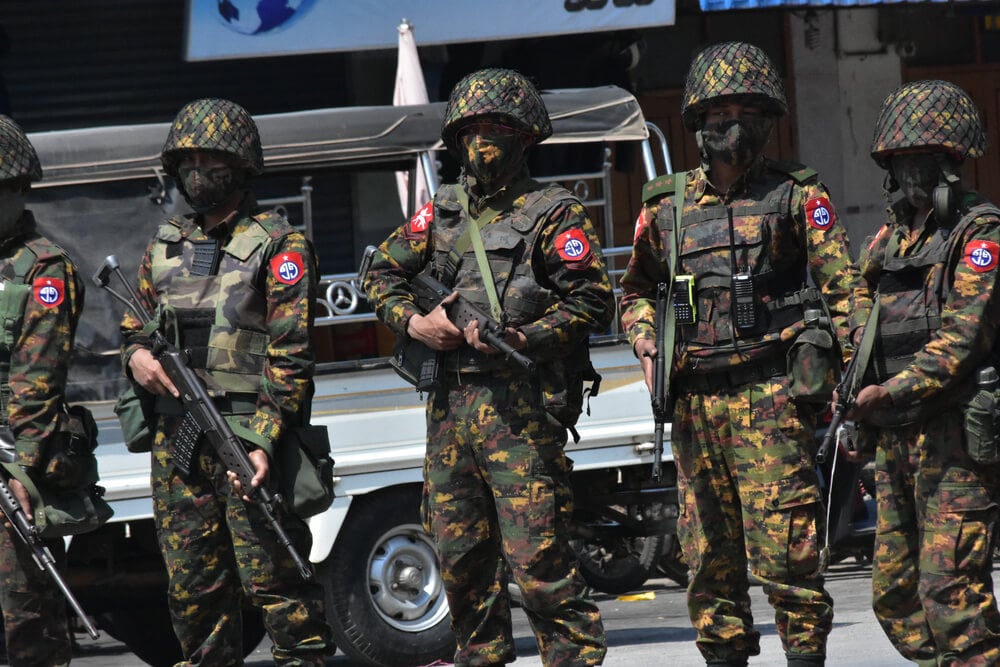The rapidly shifting fortunes of the world’s great powers sparked by President Donald Trump’s disruption have been thrown into sharp relief by the response to the earthquake that hit Myanmar on 28 March.
The US is absent, Russia has rushed in to shore up its influence, and China looks set to emerge a geopolitical winner if it can force at least a pause in Myanmar’s civil war between the junta that seized power in a 2021 coup and ethnic militias and resistance forces.
Russia and China were the first countries to have aid workers on the ground after the quake, which officially has killed more than 3,500 people, although the true toll is likely to be much higher.
Three US aid workers were laid off while working on rescue and recovery in the country, and they were among the thousands sacked as Washington dismantles USAID.
Marco Rubio, US secretary of state, when asked by the BBC why the US had not meaningfully responded to the disaster, simply expressed defiance, saying, “we are not the government of the world.” "There's a lot of other rich countries in the world, they should all be pitching in,” he said.
Rich or not, other countries did step in. When Washington reportedly tried to deploy a Disaster Assistance Response Team from the US, it was unable to because Trump’s aid cuts have led to the cancellation of logistics contracts while the officials who oversaw such deployments have been sacked, former USAID officials told the BBC.
Pro-democracy movement is likely to be further weakened
The aid cuts also mean there is no money for safe houses in Thailand used by rights activists from Myanmar, according to The New Humanitarian news site.
Myanmar’s pro-democracy movement is likely to be further weakened amid the ongoing realignment of global power and interests.
Russia and China were able to send earthquake assistance more quickly and efficiently than the US
Russia and China - both major arms suppliers to Myanmar - were able to send earthquake assistance more quickly and efficiently than the US. They are likely to extract a price for this from Myanmar’s military rulers in seeking to neutralise the threat posed by armed opposition groups to stability and security.
Before the earthquake, Russia had been eyeing a minerals deal in exchange for military assistance, akin to that which Trump is seeking from Ukraine, while China was also scrambling to ensure a secure supply of rare minerals, such as terbium oxide.
Last October, Kachin Independence Army (KIA) rebels who are mostly Christian captured areas in northern Myanmar that produce around half of the world’s heavy rare earth oxides, which are used in wind turbines and electric vehicles.
The Myanmar military has been forced out of most of the area close to the Chinese border since rebels began a major offensive in 2023. To stem the growing instability, Beijing last year promised $3 billion in assistance to the junta, but their combined clout failed to force rebels to lay down their arms.
China as a mediator
In the wake of the earthquake, the resistance groups may be forced to rethink and accept China’s role as a mediator. “The reduction of US aid in Myanmar places an additional burden on ethnic resistance groups – they now have to shoulder more of the burden of providing for the people while fighting for autonomy,” wrote Tharaphi Than of Northern Illinois University.
The opposition groups would be further weakened if Trump’s recent warm overtures towards Moscow means it emerges internationally as a stronger ally to Myanmar’s junta.
A ceasefire announced by the junta to allow earthquake relief was rapidly broken
The Myanmar people are likely to continue to lose out. A ceasefire announced by the junta to allow earthquake relief was rapidly broken as it carried out at least 14 air strikes on rebel areas within days, says the UN Human Rights Office.
There were also 100 cases of forced conscription tracked by the rights group Equality Myanmar as the military seeks to capitalise on the disaster to recruit troops.
The UN said aid access was blocked by “longstanding limitations imposed by the military on humanitarian operations” and many badly affected areas "have remained inaccessible to humanitarian emergency assistance – except for what can be organised locally by residents.”
A long history of weaponising aid
A group of 265 civil society groups spoke out against the military’s insistence that it should co-ordinate and channel aid, in a statement issued on 30 March.
“Earlier this month, the junta had already shut down seven private hospitals in Mandalay following an accusation of their employment of healthcare professionals from the Civil Disobedience Movement, severely limiting healthcare capacity in Mandalay, now torn by the earthquake,” said the groups.
 The junta had a long history of weaponising aid and directing it towards areas under its control, which amount to only 21% of Myanmar’s territory
The junta had a long history of weaponising aid and directing it towards areas under its control, which amount to only 21% of Myanmar’s territory
Their statement said the junta had a long history of weaponising aid and directing it towards areas under its control, which amount to only 21% of Myanmar’s territory, according to a BBC analysis conducted last December.
More than 20,000 people have been detained and thousands killed since the 2021 coup. Spies within the military secretly working for the rebels are known as “watermelons” - because they are rebel red on the inside.
But if the rebels are weakened post-earthquake and the junta shores up its control, China will have achieved a major aim in securing stability in Myanmar.
Myanmar is scheduled to hold elections in December. But these are likely to prove what analysts call a fig leaf to cover the junta’s 2021 power grab.